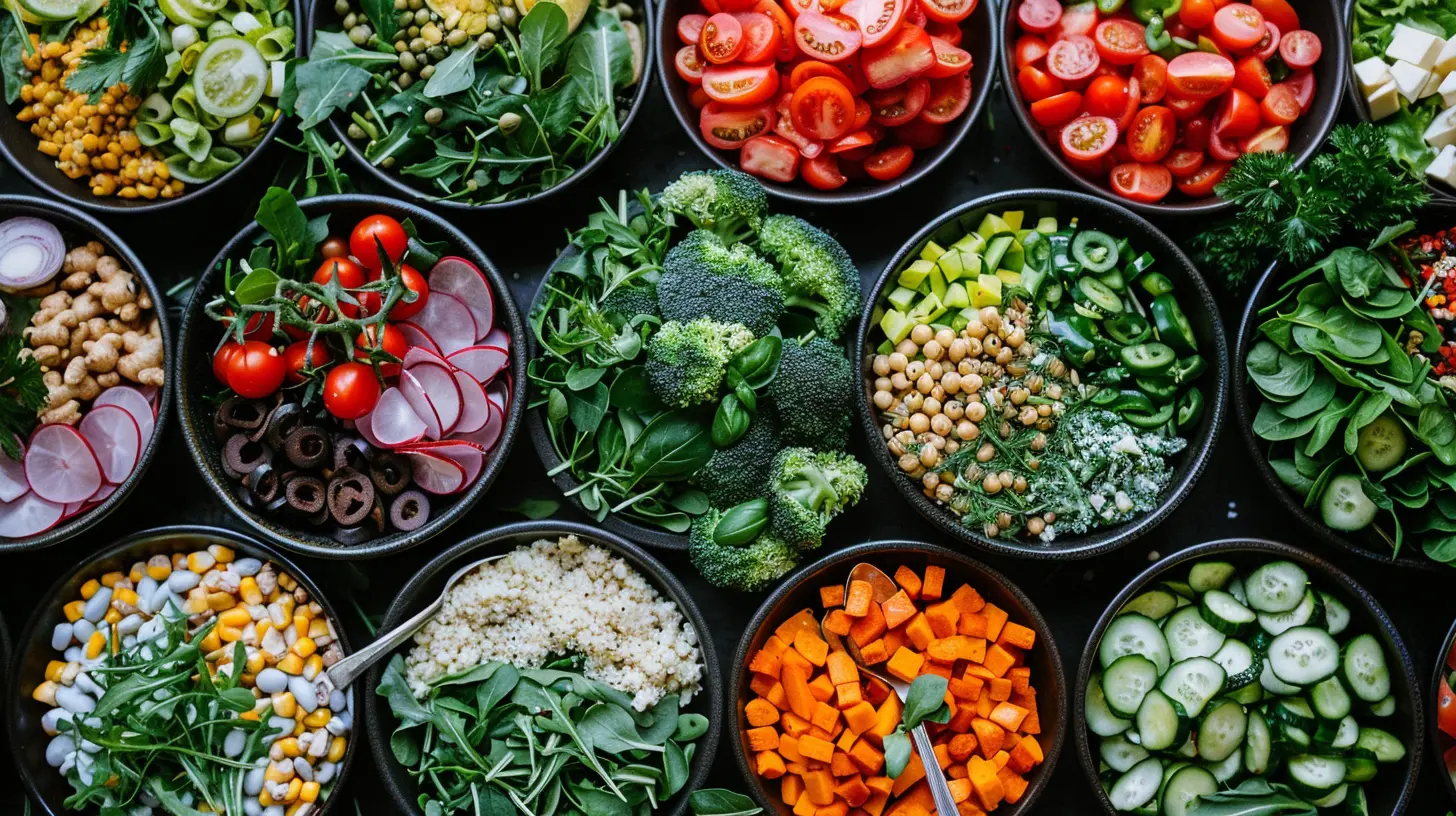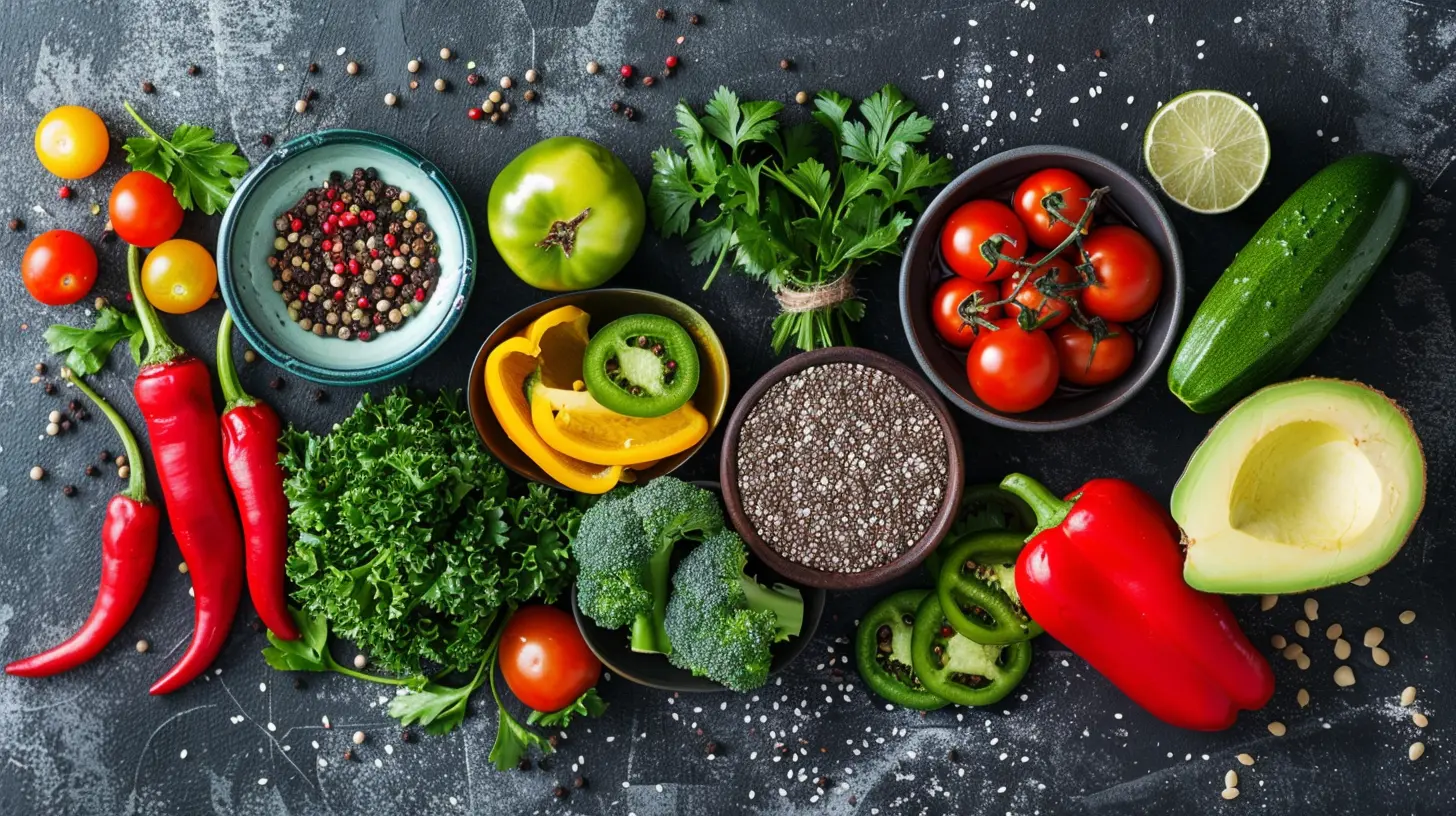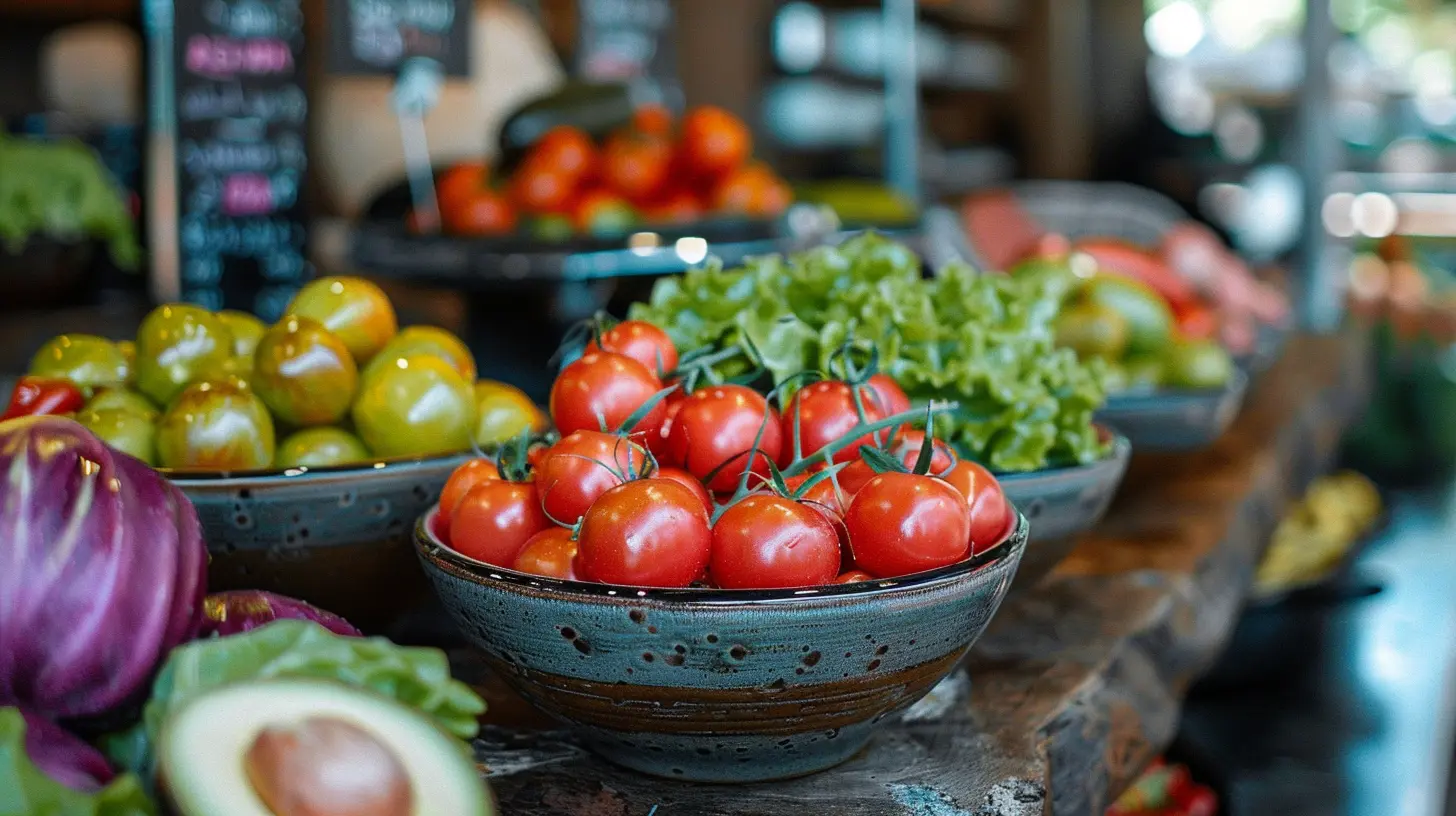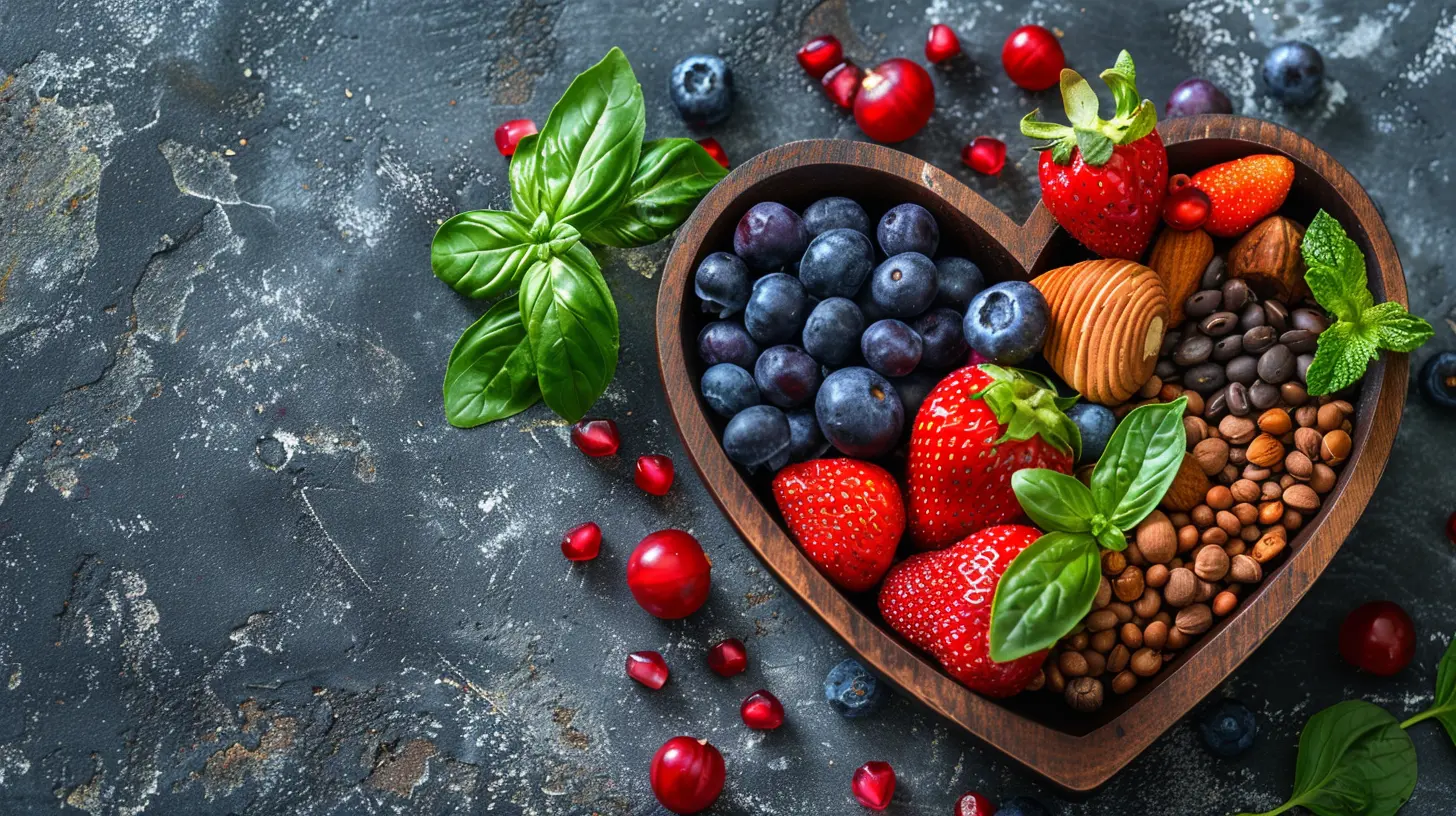Veganism for Digestive Health: Overcoming Common Issues
15 September 2025
Switching to a vegan lifestyle can be life-changing. It’s better for the environment, great for animal welfare, and packed with nutrients that do wonders for your health. Yet, one issue many new vegans face is digestive discomfort. Bloating, gas, constipation, or even diarrhea—sound familiar? Don't worry, you're not alone.
If you're struggling with digestive issues on a plant-based diet, you're in the right place. In this article, we’ll break down why these problems happen and, most importantly, how to fix them so you can thrive on a vegan diet without tummy troubles. 
Why Does Veganism Cause Digestive Issues?
Going vegan means loading up on fiber-rich plants, legumes, and whole grains. While these foods are excellent for your gut, they can sometimes cause some pretty uncomfortable digestive side effects. Why? Well, let’s break it down:1. A Sudden Increase in Fiber
Fiber is fantastic for digestion. It keeps things moving and feeds your gut bacteria. But if you're used to a low-fiber diet, suddenly doubling or tripling your intake can overwhelm your digestive system. Your gut needs time to adjust.2. Gas-Producing Foods
Beans, lentils, cruciferous vegetables (like broccoli and cabbage), and certain whole grains ferment in the gut, producing gas. If your body isn't used to these foods, you might experience bloating and discomfort.3. Gut Bacteria Adjustments
Your gut bacteria thrive on what you eat. When you switch to a whole-food plant-based diet, your microbiome needs time to adapt. As it shifts, you might experience digestive upset.4. Poor Food Combinations
Some plant-based foods digest at different rates. Eating certain combinations—like fruit after a heavy meal—can cause fermentation and bloating.5. Hidden Intolerances
Some people are sensitive to soy, gluten, or specific legumes, leading to inflammation and digestive discomfort.
How to Overcome Common Digestive Issues on a Vegan Diet
Now that we know why digestive problems happen, let’s tackle them head-on with some practical solutions.Ease Into Fiber Gradually
If your diet was previously low in fiber, don’t go from zero to hero overnight. Gradually increase your intake to allow your digestive system to adjust. A good rule of thumb? Add fiber-rich foods slowly and drink plenty of water to help move things along smoothly.Soak and Cook Your Legumes Properly
Beans and lentils are nutrition powerhouses, but they can be tough on digestion. Try soaking them overnight before cooking. This helps break down the compounds that cause gas. Cooking them thoroughly also makes them easier on your stomach.Opt for Low-FODMAP Plant-Based Foods
FODMAPs are short-chain carbs that some people struggle to digest. If you’re constantly bloated or in pain, try reducing high-FODMAP foods like onions, garlic, cauliflower, and certain beans. Low-FODMAP vegan options include zucchini, spinach, rice, and quinoa.Chew Your Food Thoroughly
Digestion starts in the mouth. Chewing breaks food down into smaller particles, making it easier for your stomach and intestines to process. Take your time, chew well, and savor your meals.Stay Hydrated
Water helps fiber do its job. If you’re increasing your fiber intake but not drinking enough water, you might experience bloating or constipation. Aim for at least 8 cups a day, and more if you’re physically active.Incorporate Probiotics and Fermented Foods
Your gut is home to billions of bacteria that influence digestion. Probiotics and fermented foods (like sauerkraut, kimchi, miso, and plant-based yogurt) introduce beneficial bacteria to your gut, helping balance digestion.Be Mindful of Food Combining
Some food combinations digest better than others. For example:- Eat fruits on an empty stomach rather than after a heavy meal.
- Avoid drinking too much liquid during meals, as it can dilute stomach acids.
- Pair proteins (like tofu or beans) with healthy fats (like avocado or nuts) to slow digestion and avoid sugar spikes.
Identify Food Sensitivities
If digestive issues persist despite making adjustments, you might have a food intolerance. Start an elimination diet by removing common culprits like soy, gluten, or legumes for a couple of weeks, and then slowly reintroduce them while monitoring symptoms.Exercise Regularly
Movement stimulates digestion. A simple walk after meals can help prevent bloating and constipation. Yoga poses, like twists and forward bends, can also assist digestion.
Addressing Specific Vegan Digestive Issues
What to Do If You’re Bloated All the Time
Bloating is one of the most common complaints among new vegans. If you’re experiencing it regularly:✔ Avoid carbonated drinks (they add gas to your gut).
✔ Reduce high-FODMAP foods temporarily.
✔ Try peppermint tea—it’s a natural digestive aid.
✔ Eat smaller, more frequent meals instead of large portions.
How to Combat Constipation on a Vegan Diet
Constipation on a high-fiber diet? It sounds ironic, but it happens. To keep things moving:✔ Drink more water. Fiber needs hydration to do its job.
✔ Get enough healthy fats (like flaxseeds, chia seeds, and olive oil).
✔ Add magnesium-rich foods (such as almonds and leafy greens) to relax your intestines.
Diarrhea and Loose Stools: What’s Going On?
Some people experience the opposite issue—diarrhea or frequent loose stools—when transitioning to a plant-based diet. This usually happens due to:✔ Excess fiber intake—try reducing fiber for a while.
✔ Eating too many natural laxatives (like prunes, coffee, or too much fruit).
✔ A sudden increase in plant-based fats—moderation is key. 
Final Thoughts: Your Gut Will Adapt
If you’re experiencing digestive issues after going vegan, don’t panic. Your body is adjusting, and with a few tweaks, your gut will thank you. The key is patience, knowledge, and listening to your body.Take it slow, experiment with different foods, and find what works best for you. Once your gut adapts, you’ll likely discover improved digestion, higher energy levels, and overall better well-being.
So, hang in there! A happy gut means a healthier, happier you.
all images in this post were generated using AI tools
Category:
Vegan DietAuthor:

Laura Hudson
Discussion
rate this article
1 comments
Nadia McCabe
This article provides valuable insights into veganism’s benefits for digestive health while acknowledging potential challenges. A helpful read for anyone considering or struggling with a vegan diet!
October 14, 2025 at 4:41 PM

Laura Hudson
Thank you for your feedback! I'm glad you found the article helpful in addressing both the benefits and challenges of veganism for digestive health.


